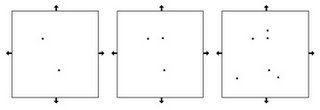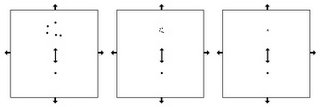Related background and this is also of interest.
I remain convinced that our perception of time is purely due to computational work that underlies basic cognition.
- Rovelli, the advocate of a timeless universe, says the NIST timekeepers have it right. Moreover, their point of view is consistent with the Wheeler-DeWitt equation. “We never really see time,” he says. “We see only clocks. If you say this object moves, what you really mean is that this object is here when the hand of your clock is here, and so on. We say we measure time with clocks, but we see only the hands of the clocks, not time itself. And the hands of a clock are a physical variable like any other. So in a sense we cheat because what we really observe are physical variables as a function of other physical variables, but we represent that as if everything is evolving in time.
I had a number of lengthy debates with a physics professor I worked for about this. I came to the conclusion that we understood reality to be two very different things. He is a brilliant physicist, and it made me realize that a deep understanding of physics did not require such a subjective definition of time. To him, time was real. I can't see it.
I wrote this about seven years ago, quoted below. This remains to be time as I understand it:
- matter, space and time
Picture one point particle in infinite, otherwise empty space. After some thought, it becomes apparent this is an impossibility. The point particle has no reference for its position or any evolution of state. Nothing can interact with it. The scenario is impossible.
Now imagine two point particles in the same infinite space. The particles exist only in terms of one another. Evolution of state and position are very weakly defined.
Add another particle. With three particles, spatial information gets much more complex. Two particles can be closer to each other than the third. Evolution of state gets much more complex as well.
As more particles are added to this scenario, it becomes evident the that both time and space become more defined. As time is defined by evolution of state, and space is defined by relative position, it can be said that time and space emerge together as a function of the presence of matter.
Now, imagine that one of the particles becomes relatively distant from the others. What is the consequence?
As the relative distance between this particle and the distances between the others grows, this particle’s state begins to resemble the two particle system. This particle’s time and space become less defined as the distance in-between gets relatively large.
It is known that matter alters space and time via its gravitational field. It is interesting that time is relatively slowed as a gravitational field increases in strength.
posted 3833 days ago

